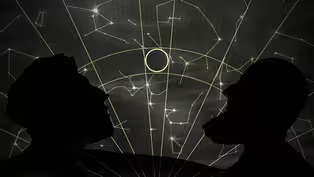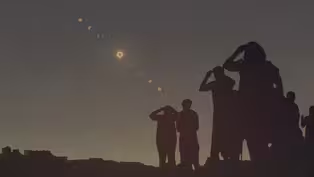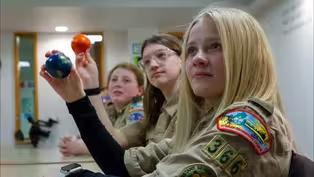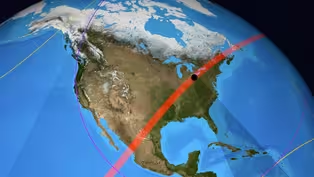Special Programs
Eclipses and Astrophotography
Clip: Episode 20 | 3m 3sVideo has Closed Captions
CMU Professor, Dr. Axel Mellinger, shares his passion for astrophotography.
Central Michigan University Professor, Dr. Axel Mellinger, shares his passion for astrophotography.
Problems playing video? | Closed Captioning Feedback
Problems playing video? | Closed Captioning Feedback
Special Programs is a local public television program presented by WCMU
Special Programs
Eclipses and Astrophotography
Clip: Episode 20 | 3m 3sVideo has Closed Captions
Central Michigan University Professor, Dr. Axel Mellinger, shares his passion for astrophotography.
Problems playing video? | Closed Captioning Feedback
How to Watch Special Programs
Special Programs is available to stream on pbs.org and the free PBS App, available on iPhone, Apple TV, Android TV, Android smartphones, Amazon Fire TV, Amazon Fire Tablet, Roku, Samsung Smart TV, and Vizio.
Providing Support for PBS.org
Learn Moreabout PBS online sponsorship- I got my first telescope at the age of 12, and since then I've been hooked on astronomy and astrophotography.
Astrophotography is the photography of anything that you see in the sky.
So that could be the sun, the moon, planets, stars, nebulas, galaxies.
And of course, depending on what you photograph, you need very different equipment.
Essentially, the telescope becomes the lens.
So the telescope has that almost eight inch prime mirror at the back that captures the light, reflects it back, and then there's a small secondary mirror at a 45 degree angle that sends out the light out to that port on the side of the telescope where the camera is.
When I pick an object, I shoot it for several nights.
My astro camera is a monochrome, black and white camera, so I have to shoot with different color filters, and I shoot multiple exposures, typically about two to four minutes in length, and then I shoot 10, sometimes even 100, 200 individual exposures.
Multiply that by three for three colors.
So that often takes several nights.
One of the things I learned from previous eclipses is that mobility is the key.
In 2017, I met with some friends and people from the local astronomy clubs in Carney, Nebraska, and we looked at the forecast the night before the eclipse, and it was kind of iffy.
So my family and I decided we'll do a six hour night drive into Wyoming, and it paid off.
We enjoyed the eclipse under perfectly clear skies.
So totality lasts only for a few minutes.
Back in 2017, it was a little over two minutes.
This year's eclipse has four minutes of totality.
That's still not a lot of time, and you really want to spend that time enjoying the moment, looking around, maybe spotting some planets in the dark sky, and you don't want to mess around with the camera.
So really the key thing is to have your camera run on a fully automatic mode.
That means I connected to a computer, I have a program that I set up to program a sequence of shots, and I press go, and then ideally, I don't have to touch it until the eclipse is over.
If you're a first time eclipse watcher, don't spend too much time on photography, especially if you don't have experience with eclipse photography or solar photography in general, because you will just miss so much.
It's better just to enjoy the scenery.
Video has Closed Captions
Clip: Ep20 | 5m 23s | Scientists use eclipses for discovery and to prove their theories. (5m 23s)
Video has Closed Captions
Clip: Ep20 | 5m 1s | CMU Professor, Dr. Ari Berk, describes how different cultures interpret eclipses. (5m 1s)
Eclipse Preparation with Scout Troop 366G
Video has Closed Captions
Clip: Ep20 | 3m 59s | In Saginaw, Scout Troop 366G prepares to view the eclipse. (3m 59s)
Video has Closed Captions
Clip: Ep20 | 7m 58s | CMU Professor, Dr. Aaron LaCluyze, describes viewing a total eclipse. (7m 58s)
Providing Support for PBS.org
Learn Moreabout PBS online sponsorship

- News and Public Affairs

Top journalists deliver compelling original analysis of the hour's headlines.












Support for PBS provided by:
Special Programs is a local public television program presented by WCMU




